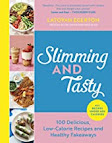Knowing how to get the most from your money, is a skill that any thrifty homemaker will benefit from. The reality is, most of us will have household budgets that go as far as they can. Weekly expenses for a family of four in the UK worked out at an average of £536.80 in 2017. This figure will only have risen alongside the rising food prices and costs of living. Apart from the cost of housing, food, fuel, and power are significant drains on household’s resources. With even the most careful planning and food shopping, your weekly shop can often be the biggest drain on your household budget. However, there are certainly ways you can maximise your household budget, and you can find some of these ways listed below.
Buy wholesale
We’ve all heard of Costco, but did you know that you can buy wholesale online from the comfort of your own home? Forget about buying small bags of coffee each week at your local supermarket, and consider wholesale coffee quickly delivered to your home. In this financial climate, it’s never a bad thing to have a stockpile of food in your pantry, so it’s certainly worth buying non-perishable food in bulk. Worst case scenario you can just eat the food you have stockpiled, or donate to a food bank. In a non-apocalyptic scenario (here’s hoping) stockpiling food and buying wholesale will save you money in the long term. For example, online, or wholesale stores, often provide discounts for wholesale purchases, as a way to encourage the customer to buy more which also works out cheaper for the customer.
Heard of flexitarianism?
With meat and fish making up a considerable portion of the average food budget, it makes sense from a financial aspect to cut down on your meat consumption. Of course, the ethical and environmental factors are major reasons many people are choosing to reduce or eliminate their animal consumption. If you can’t quite see yourself eliminating meat entirely, then you might be interested in flexitarianism. A flexitarian is someone who is ‘flexible’ with their diet. Whether you choose to reduce your meat or dairy consumption, this lifestyle can suit a variety of diets and preferences. It is essentially the reduction of meat from your diet, but provides you the flexibility to have some meat days, without the label of being vegetarian or vegan.
Shop around
We tend to be creatures of habit in our daily lives. Instead of going to the same supermarket week in week out, consider other stores and look where you can find the best deals in each one. For example, one supermarket may have a deal on toiletries while another one has a better priced vegetable section. Do take a look at local markets, as fruit and veg can be found at discount prices especially towards the end of a market day. This also goes for petrol. The differences in price between one petrol station and another one a couple of miles away is sometimes staggering. Don’t always go for convenience, as it doesn’t pay when you are trying to be conscious of your budget.
%20(1).png)
.png)










0 Comments